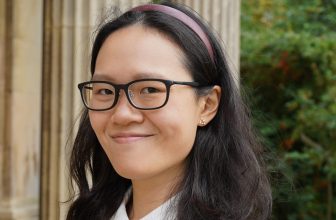

Allegra Roccato is an experienced events leader with over 15 years of expertise in international associations, healthcare, and science. As head of events at World Physiotherapy, she oversees the delivery of its flagship global congress and strategic events worldwide.
With a master’s degree in disability studies and a background in inclusive sport and policy, Roccato brings a strong focus on accessibility, innovation and sustainability to her work.
Her career spans senior roles at World Physiotherapy, the International Society of Nephrology, and the European Cancer Organisation, as well as early experience with the Italian Paralympic Committee.
Women Leaders in Meetings is a Skift Meetings series that celebrates remarkable female leaders who are not only excelling in the meetings and events industry but also championing inclusivity and diversity at the top. We highlight women who are breaking barriers, lifting others as they rise, and leaving a lasting legacy of empowerment. Through this series, we honor the achievements and impact of these inspiring women who are making a difference in the world of meetings and events.
What does leadership mean to you?
Leadership is fundamentally about leading by example. It’s not about authority or control, but about presence, awareness, and collaboration. As my 4-year-old daughter wisely puts it, it is about having “open ears and open eyes”. That means being observant, listening actively, and understanding the dynamics around you before making decisions.
True leadership involves building consensus, not imposing direction. It is about creating space for dialogue, encouraging diverse perspectives, and ensuring that decisions are informed and collectively owned. When people feel heard and valued, they are more likely to commit to a shared vision.
Leadership also means being accountable and adaptable – recognising when to step forward and when to step back, when to guide and when to support. It is about fostering trust, empowering others, and moving together toward a common goal with clarity and purpose.
Ultimately, leadership is a continuous practice of learning, empathy, and integrity — qualities that help build resilient teams and meaningful outcomes.
What qualities make a good leader?
A good leader embodies a blend of vision, creativity, humility, and trust. First and foremost, a leader must have a clear and compelling vision of what is best for the association or company.
But having vision is not just about foresight — it’s about creativity. It requires thinking outside the box, connecting the dots in unconventional ways, and being brave enough to challenge norms without fear of judgment.
Equally important is the ability to empower and manage a team effectively. A good leader listens deeply to their colleagues, understands their needs, and trusts their judgment. Sometimes, leadership means taking a leap of faith and believing in someone’s potential even before they fully see it themselves.
A great leader is also hands-on and grounded. They do not see any task as beneath them and are always ready to roll up their sleeves and support the team wherever needed. This kind of humility and presence fosters respect and builds strong, collaborative relationships.
Good leadership is about creating an environment where people feel inspired, supported, and confident to contribute their best, while moving together toward a shared goal.
How would you define your own leadership style?
My leadership style is people-centred, collaborative, and solution-focused. I genuinely care about building strong personal connections with my team. No matter the role or seniority, I make it a priority to establish trust and rapport. I operate with an open-door policy and strive to be approachable and available, especially when someone has a doubt, a concern, or simply needs to talk something through. It’s import to me that they feel in a safe place where they can perform at their best.
I also see myself as a motivator and morale-builder. Events can be incredibly stressful, particularly in the final stretch, and I believe it is essential to keep the team feeling valued and supported. I never miss an opportunity to acknowledge someone’s extra effort or thank them for going the extra mile. Recognition is not just a nice gesture, it’s a vital part of sustaining energy and commitment.
At the same time, I’m highly solution-oriented. I enjoy the process of analysing challenges, exploring different scenarios, and working collaboratively to find the best path forward. I thrive in environments where ideas are shared freely, and I actively encourage input from everyone, because I believe the best solutions often come from collaborative thinking.
What skills have you developed that have helped you grow into the leader you are today?
The leader I am today has been shaped by a unique combination of personal resilience, professional experience, and a deep commitment to inclusion and innovation.
One of the most defining skills I have developed is resilience. As a head and neck cancer survivor, I have gone through surgery, radiotherapy, speech therapy, and physiotherapy (and so much more). During that time, I was focused on getting back to “normal” but I’ve come to understand that life after cancer is not about returning to what was, but embracing what is. That experience gave me a profound sense of perspective. Challenges that once felt overwhelming now feel manageable. I have learned to stay calm under pressure, focus on solutions, and lead with clarity even in the most stressful situations.
My “first” career in the disability and Paralympic sector taught me the art of complex problem-solving. Organising events for hundreds of wheelchair users required navigating immense logistical challenges – from accessibility to transport and accommodation. That experience sharpened my ability to think creatively, anticipate barriers, and find practical solutions. It also deepened my commitment to diversity, equity, and inclusion. I have seen firsthand what exclusion looks like, and I bring that awareness into every decision I make as a leader.
I have also developed strong emotional intelligence. While I am naturally expressive and love to talk (I’m Italian, after all!), I have learned to be a good listener. I can often sense how people are feeling without them needing to say a word. I lead with empathy, and I see that as a strength, especially in high-pressure environments like event planning, where emotional awareness can make all the difference in team dynamics.
Finally, I have cultivated a strong technical acumen. I have always been curious about technology and consider myself a bit of a geek. This allows me to engage confidently with suppliers and partners, discussing APIs, SSOs, ports, and traffic volume with ease: this helps build trust with them and ensures our events are not only well-executed but also innovative and seamless.
What challenges keep you up at night?
One major concern is the budget. We all want our events to be successful, not just in terms of experience, but also in generating the funds that support an association’s charitable and strategic activities. However, forecasting in a post-COVID world has become increasingly complex. Even with risk assessments, conservative budgeting, and multiple forecast models, there is a constant layer of uncertainty, whether it’s global instability, political unrest, climate-related disruptions, or other unpredictable factors.
Another key concern is staff wellbeing. I want my team to feel fulfilled, supported, and genuinely valued. Events are high-pressure environments, and I am always thinking about how to keep morale high, how to make people feel they are making a difference, and how to ensure they put their own wellbeing first, especially during peak periods.
Finally, I often reflect on the relationship with volunteer leaders, especially our board and committee members. How do we help them understand our operational priorities and constraints? How do we reconcile their requests with budgetary and logistical constraints? And how do we encourage a culture of forward planning, so we are not navigating last-minute demands during the busiest times of the year?
Which female leaders have inspired you the most?
Tracy Bury, former chief executive officer of World Physiotherapy, is someone I admire both professionally and personally. Her depth of experience in association management, global events, cross-cultural communication, and professional development is remarkable. But beyond her impressive career, Tracy is also a kind, thoughtful individual. She’s a mother, a friend, and a mentor. She embodies the kind of leadership I aspire to: knowledgeable, empathetic, and quietly powerful. She is the leader I hope to grow into over the next decade.
Camille Hoffman, head of commercial operations at Galapagos, showed me that great leadership is not about knowing every technical detail of your team’s work, it’s about trust, vision, and alignment. She led a newly formed, complex matrix team with clarity and confidence, and she trusted my expertise unconditionally. Together, we built a shared sense of purpose and collaboration. Her ability to lead through trust and empowerment left a lasting impression on me.
What is your advice for aspiring women leaders?
Be curious and never stop asking questions. Curiosity is the foundation of growth, innovation, and leadership. The meetings industry is constantly evolving, and staying curious helps you stay ahead.
Look outward, not just inward. Associations like AC Forum, PCMA, and ICCA are invaluable for learning, benchmarking, and sharing knowledge. A strong leader in events keeps an eye on what others are doing, asks: Could this work for us? and is not afraid to adapt and innovate.
Make time for exploration. Block out time to read, research, and connect with new providers. Skim articles, attend webinars, explore new platforms. The sector moves fast, staying informed is key to staying relevant.
Above all, trust your instincts, build your network, and do not wait for permission to lead. Leadership is a mindset, and every conversation, every challenge, and every idea is a chance to grow.






